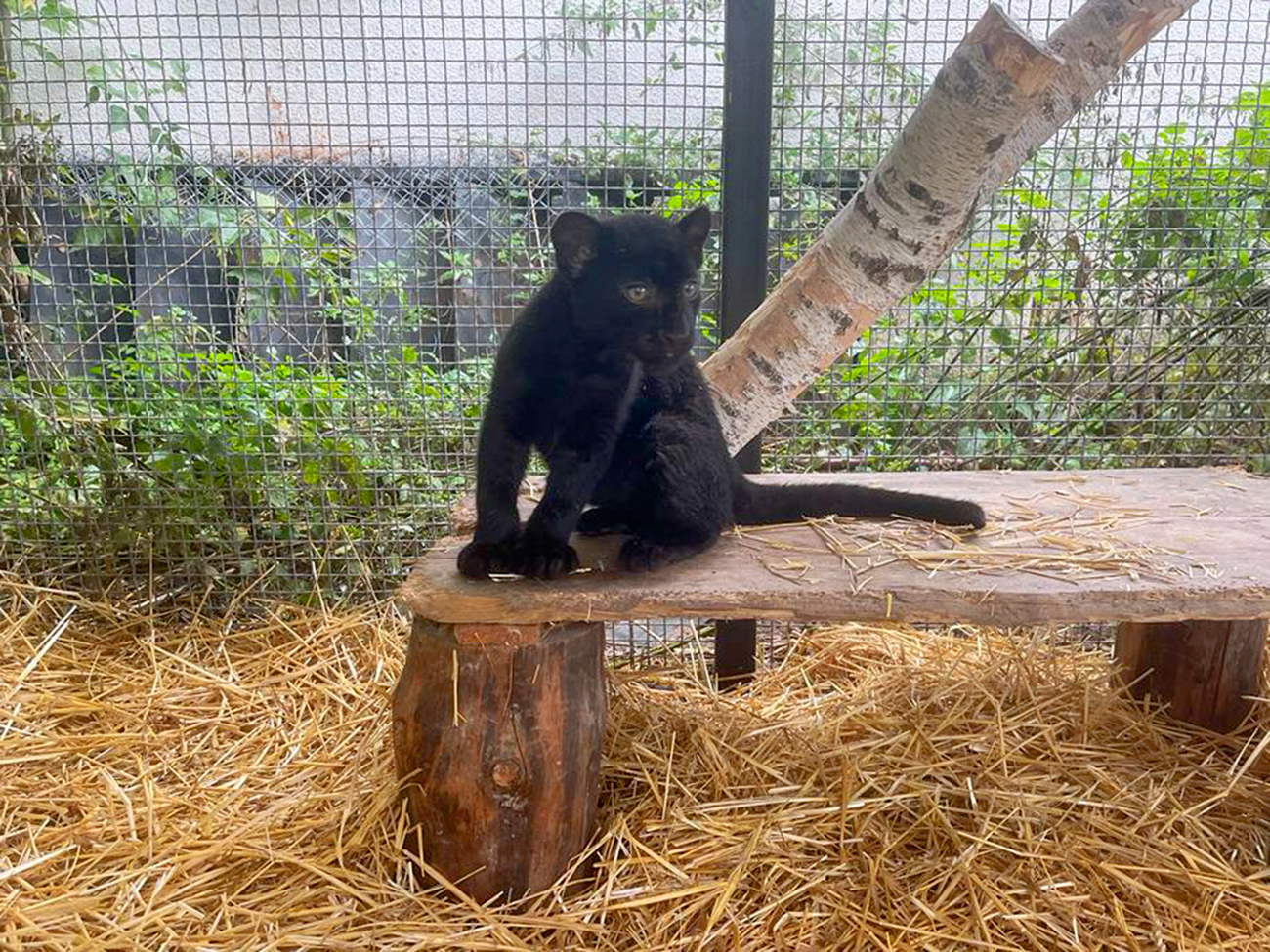Rescuing animals during disasters – Europe
save human lives by saving animals before, during and after disastersleopard cub rescued from Ukraine moves to rescue center in France
leopard cub rescued from Ukraine moves to rescue center in France

(Reims, France - 23 December 2022) - A black leopard cub rescued from the exotic pet trade in war-torn Ukraine has arrived this morning in a wildlife shelter in France.
The cub, named Kiara, is now six months old and was only a few weeks old when she was surrendered to Wild Animal Rescue Center, a wildlife rescue organization in Kyiv, Ukraine.
The rescue organization reached out to IFAW to help evacuate Kiara and find her a long-term home. Her rescue journey began at Poznań Zoo in Poland where she stayed for a few weeks receiving care and recovering from her long journey from Ukraine. When she was ready, plans were made for her move to wild animal rescue center Tonga Terre d’Accueil in France.
"Kiara, at her young age, has already endured many trials in her life. Born during the war and the result of wildlife trafficking, her first weeks of life were traumatic," explained Loïs Lelanchon, Wildlife Rescue Program Manager.
"When Wild Animal Rescue Center asked us to save this leopard, we committed ourselves to find her a new home, which is now going to be possible thanks to our partner Tonga Terre d'Accueil, who was very keen to welcome Kiaria in their rescue center.”
Tonga Terre d’Accueil is a charity that was created to support the French authorities in addressing the growing problem of wildlife trafficking by providing a temporary center for seized wild animals. The team takes in exploited and abused wildlife, and cares for them while looking for a permanent care facility.
"Since the beginning of 2022, our shelter has been facing an explosion of animals rescued from animal trafficking, especially servals and caracals. People's craze for keeping exotic animals as pets has become a real crisis. It is vital to put in place laws that are sufficiently dissuasive with heavy penalties,” said Pierre Thivillon, Founder and President of Tonga Terre d’Accueil.
“Wildlife trafficking is exacerbated by social networks that facilitate the sale and promote the ownership of exotic animals, showering internet users with images of wild animals, much used to gain likes and followers. However, a wild animal has no place on a sofa or in a bedroom: it is forbidden, dangerous and incompatible with its well-being.” said Jean-Christophe Gérard, veterinarian and vice president of Tonga Terre d’Accueil.
Kiara made the journey from Poland to France in a light vehicle suitable for transporting animals. After travelling for 1,500kms over 15 hours (including stops) she has now arrived safely in her new home. She will remain in care at Tonga Terre d’Accueil until she’s ready to be placed at a facility that will ensure she has a safe place to live out her years.
Since the beginning of the war, IFAW has helped countless of wild animals from Ukraine by providing emergency support, procuring animal food, such as baby cat milk formula, and working with partners to facilitate evacuations, when feasible.
ENDS
Media assets are available via this LINK.
Additional assets are available on request
Press Contact:
Camille Vicet
press@ifaw.org
About IFAW (International Fund for Animal Welfare) - IFAW is a global non-profit helping animal and people thrive together. We are experts and everyday people, working across seas, oceans and in more than 40 countries around the world. We rescue, rehabilitate and release animals, and we restore and protect their natural habitats. The problems we’re up against are urgent and complicated. To solve them, we match fresh thinking with bold action. We partner with local communities, governments, non-governmental organizations and businesses. Together, we pioneer new and innovative ways to help all species flourish. See how at ifaw.org.
About Tonga Terre D’Accueil - The charity was created in 2008 by the Espace Zoologique de Saint-Martin-la-Plaine (Loire) with the aim of supporting the authorities in taking in wild animals. The refuge, which is not open to the public, has been defined as a temporary shelter for primates and felines in particular. These animals may have been seized by the authorities from individuals or circuses for illegal detention or abuse. Animals may also be voluntarily surrendered by circuses or laboratories. After having socialised the animals in groups or pairs, we seek to place them in zoos, which have the space and the necessary authorizations to accommodate these animals, or in sanctuaries elsewhere in the world.
Related content
Our work can’t get done without you. Please give what you can to help animals thrive.